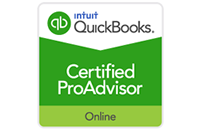Every year the holidays come and go. After all is said and done, when the New Year has been rung in and the dust begins to settle, a less cheerful time of year comes along. Not many people like to talk about tax season – it can be a stressful, painstaking process to get a year’s worth of financial information in order. Nonetheless, the taxes have to be paid.
But just because the bill is due doesn’t mean you have to throw in the towel. Today, we’re going to take a look at five oft-forgotten business expenses that you need to remember when tallying up your tax deductions to help save money and make writing that check sting a little less.
Home Office
In addition to any equipment that helps you run your business, one big expense that you might not realize you can deduct is the cost for the space you work in.
If that happens to be a home office, you’re entitled to deduct the full value of that space. So if your house is 2000 square feet and you use 200 square feet of it for your home office, you’re entitled to deduct ten percent of the total expenses for your home – including mortgage interest, utilities, property taxes, repairs, etc.
Just make sure that the space you’re deducting is truly being used primarily or entirely as an office space and don’t try to fudge the numbers. It’s not a guarantee, but seemingly excessive deductions for a home office can raise a red flag for the IRS and possibly trigger an audit.
Health Insurance
Since 2002, self-employed individuals have been able to deduct up to 70% of their total health insurance premium. This can be a big deal, since health insurance premiums can be sky high without the benefit of a group rate – especially if you and your spouse are both self-employed and neither of you are able to take advantage of an employer-sponsored plan.
General Business Expenses
It’s common knowledge that almost any genuine business expense is tax deductible; however, when this gem often gets forgotten is in situations where a business owner pays for a business expense with personal funds and forgets to track it in their books. One of the easiest ways to eliminate this issue is to keep your business funds and personal funds entirely separate – even if you are the only employee. Doing so just makes sense, and will help keep you and your accountant sane when it comes time to reconcile and close the books.
Technology Subscriptions
Computers, points-of-sale, tablets… these are pretty straightforward as equipment costs. But do you pay a monthly or annual subscription for certain software licenses? What about a plan for your work cell phone? Don’t forget to deduct these recurring costs, since they can often add up to more than the equipment cost in the first place!
Automobile Expenses
If you’re using a personal vehicle for business, it’s important to remember that you can deduct a portion of your automobile expenses. There are two ways to do this, and both require keeping an eye on your odometer and tracking how much of your total mileage was driven for business. The first option is to track your actual expenses – fuel, maintenance, etc. – and deduct the actual value of your expenses. So if you drive 20,000 miles in a year and 10,000 of them are for business, you can deduct 50% of these actual expenses.
The alternative is to use the IRS’ standard mileage rate – $.545 per mile – which is intended to account for both fuel and wear & tear. Handling your auto deduction this way doesn’t free you from having to track miles and can sometimes lead to a lower deduction – but you don’t have to keep track of every receipt for gas or oil changes either. If you struggle with tracking your drive time, check out our recent Tech Spotlight on mobile apps that help log



